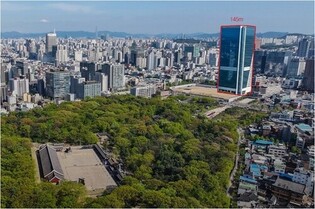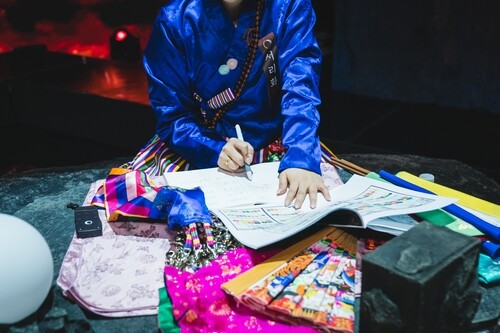 |
| ▲ Former President Moon Jae-in speaks during a ceremony marking the sixth anniversary of the Sept. 19 Pyongyang joint declaration in the southwestern city of Gwangju on Sept. 19, 2024. (Yonhap) |
(LEAD) ex-president-unification
(LEAD) Ex-President Moon calls for reviewing discourse on unification of two Koreas
(ATTN: ADDS more details, comments in last 4 paras)
SEOUL, Sept. 19 (Yonhap) -- Former liberal President Moon Jae-in called for a "complete review" of South Korea's discourse on inter-Korean peace and unification Thursday, as North Korea newly defined inter-Korean relations as those between two states hostile to each other.
Moon made the point in his speech at a ceremony held in the southwestern city of Gwangju to mark the sixth anniversary of the Pyongyang Declaration announced by Moon and North Korean leader Kim Jong-un after summit talks in the North.
"Now that North Korea has defined inter-Korean ties as ones between two nations hostile to each other, it is needed to completely review the existing discourse about peace and unification," Moon said.
"It is what the South Korean government needs to do first, but the incumbent government appears to have neither the willingness nor capability to do so," he said.
In January, the North's leader Kim called for a change to its constitution to identify South Korea as "the No. 1 hostile country," saying that he no longer believed unification of the two Koreas is possible.
Yoon, however, announced a unification doctrine during a speech marking Liberation Day on Aug. 15 that pursues peaceful unification with the North based on liberal democracy. He also put a strong emphasis on ways to expand access by North Koreans to external information and inducing changes in the regime and the people there.
The South Korean Constitution stipulates that the territory of the Republic of Korea includes the Korean Peninsula and its adjacent islands, and mandates that the country pursue unification and establish a peaceful unification policy based on the principles of liberal democracy.
"We are at a very dangerous moment where just one small wrong step could turn into a military clash," Moon said, pointing to the North's sending of trash-filled balloons across the border and the suspension of the inter-Korean military tension reduction agreement.
"The two Koreas must stop aggravating the situation and come forward for dialogue."
In June, the Yoon government suspended the pact, often dubbed the "Sept. 19 military agreement," allowing it to resume military training near the border and restart loudspeaker propaganda broadcasts into the North.
Moon also stressed the need for closely sharing negotiation strategies and policy coordination with the United States to achieve the complete denuclearization of the Korean Peninsula as there is a possibility of a resumption of dialogue between North Korea and the U.S. under a new U.S. government.
"We must make efforts to lead dialogue if we don't want to be marginalized or excluded from denuclearization talks," Moon said.
During the ceremony, Im Jong-seok, a former chief of staff for Moon, made what appeared to be a bolder, but controversial, suggestion, proposing that the two Koreas do not reunify while living just as they are.
"I think it would be good for South and North Korea to live just as they are while respecting each other," Im said in his keynote speech, proposing the acceptance of the two Koreas as separate nations and removing the territorial clause in South Korea's Constitution.
Under the 1991 inter-Korean basic agreement, inter-Korean ties were defined as a "special relationship" tentatively formed in the process of seeking reunification, not as state-to-state relations.
(END)
(C) Yonhap News Agency. All Rights Reserved
























![[게시판] 안무저작권협회, 국가대표 출신 선수 출연 토크콘서트](/news/data/20251118/yna1065624915929065_337_h2.jpg)









